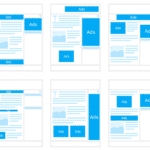How to Build Quality Backlinks in 2023: The Ultimate Guide
Are you tired of seeing your website languishing on page two or three of Google search results? Do you want to improve your website’s ranking and drive more traffic to your site? If so, you need to focus on building quality backlinks. In this article, we’ll cover what backlinks are, their importance, and how to build high-quality backlinks that will help your website rank higher on Google.
Recommended Search Engine / SEO Articles
What is SEO? SEO Meaning, SEO Definition, and SEO Rankings
Search Engines Explained. How Does Search Engine Work?
Search Engines List – Top Search Engines for 2018
What are Backlinks?
Backlinks are links from other websites that point to your website. They are like votes of confidence that tell search engines your website is useful, informative, and relevant. The more high-quality backlinks your website has, the higher it will rank on search engine results pages (SERPs).
Quality Backlinks
Not all backlinks are created equal. A backlink from a high-quality website, like The New York Times or Forbes, carries more weight than a backlink from a low-quality website. Google’s algorithm considers the quality of the website linking to your site when determining your website’s ranking.
To get high-quality backlinks, you need to focus on creating valuable content that other websites want to link to. This could be anything from a blog post, infographic, or white paper to a product review or how-to guide. The key is to create content that is informative, engaging, and relevant to your target audience.
Niche & Relevance of a Backlink
In addition to quality, relevance is also an important factor when it comes to backlinks. Backlinks from websites that are in the same niche as your website are more valuable than backlinks from websites in unrelated niches. For example, if you have a website that sells pet products, a backlink from a website that specializes in pet care would be more valuable than a backlink from a website that sells plumbing supplies.
To find relevant websites for backlinks, start by researching websites in your niche. Look for websites that have high domain authority and a good reputation. You can also use tools like Ahrefs, SEMrush, and Moz to find websites that are linking to your competitors. Reach out to these websites and offer to create valuable content for them in exchange for a backlink.
Organic Backlinks / Natural Backlinks
Organic backlinks, also known as natural backlinks, are links that are placed on other websites without any solicitation from you. These links are a sign that other websites find your content valuable and want to share it with their audience.
To get more organic backlinks, focus on creating high-quality content that people will want to share. This could be anything from a blog post or infographic to a video or podcast. Make sure your content is informative, engaging, and relevant to your target audience.
Non-Natural Backlinks / Inorganic Backlinks
Inorganic backlinks, also known as non-natural backlinks, are links that you pay for or otherwise solicit. These links are frowned upon by Google and can actually hurt your website’s ranking. In fact, Google has penalized websites in the past for using inorganic backlinks.
Instead of using inorganic backlinks, focus on building relationships with other websites in your niche. Offer to create valuable content for them in exchange for a backlink. This approach takes more time and effort, but it is much more effective in the long run. Here is a quick list:
- Paid Links / Link Schemes
- Paid Links with the purpose to manipulate Google’s algorithm is a violation of Google’s guidelines.
- Is the source website classified as selling links?
- Are there multiple external links on a page? Usually very low Domain Authority.
- Does the article or content source link follow their site niche? (i.e. Off-topic: Food following a Car site?)
- Paid Links sites are pretty easy for Google to find… They have to advertise!
- Links from backlink exchange programs:
- Link Exchange
- Participating in blog networks –
- WordPress Plugins for exchanges
- Links from low-quality directories
- From the same IP address
- Same WhoIs address
- Same AdSense publisher code
- Anchor Text Links – Non-matching keyword
- Are they Relevant to the linked-to page?
- Overly Keyword heavy (keyword density)
Internal Website Linking
With Google’s RankBrain algorithm in full effect, Google now tends to promote or demote a web page rather than the entire website. While it is good news for most of the SEOs as they can eliminate the fear of their client’s site being demoted. This means the number of works increases as every web page needs to be addressed as its own unique site. Now, do you have to optimize your ‘Contact Us’ or ‘About Us’ page? Probably not, especially if you properly optimize your pages to coincide with your niche and offer great content for your base. I would simply make sure that your website’s internal linking forms a strong mesh between blogs, pages, and articles of importance. In this way, your site’s overall ranking will affect the other pages positively.
Paid Backlinks versus Paid Advertising

It can be a tad confusing, but there is a difference between a Paid Link and Paid Advertising. Search engines do not penalize more honest forms of advertising. A link from pay-per-click or pay-for-impression platforms has distinct characteristics and does not try to artificially manipulate search engines. It should also be stated that paid advertising typically does not affect or get indexed by search engines, but they are not DE-INDEXED as a known paid link (removed & penalized).
SEO Backlinks and Domain Authority
So what is Domain Authority? Domain Authority is the measure of a website and how well it’s likely to perform in search engine results. It has a lot to do with relevancy, niche, credibility, and longevity. It is how authoritative a website is to search engines. Domain Authority is ranked on a scale of 1 to 100. At one point and time, Google used to publish PageRank (i.e. Domain Authority) and stopped. Soon the industry developed ‘Domain Authority’ to replace the gap left by Google. Google has no single authority metric and uses a very complex algorithm that rates individual pages and sites overall in some secret formula.
Domain Authority Research Tools
So now that we briefly discussed Domain Authority, how in the world can you tell what a website’s domain authority is? I am listing some key tools to help identify a website’s domain authority score. Again, it is not Google’s exact ranking; but close enough especially when dealing with horseshoes.
- Moz’s Link Explorer – moz.com
- Ahrefs – ahrefs.com
- Majestic – majestic.com
Quick Tip to Increase Your Domain Authority
Now that you know how backlinks work with search engines; what is the quickest way to increase your backlink domain authority? Conduct and write an expert roundup post! A roundup post is a type of blog post that features contributions from multiple experts within a specific niche (think content specific). Typically the host blogger will provide a compelling question or a topic for discussion and reach out to various experts to share their insights. Once you’ve published the post, ask them to share it on their favorite social network. By doing this, every contributor’s blog, social media, and website are going to get more visibility and traffic.
Smart Way to Building Backlinks for SEO
Top 8 Ways to Building Backlinks
- Backlinks via offering Infographics
- Infographics are one of the most popular methods for bringing traffic to your website and gaining valuable backlinks. Create one for your niche and offer it to your community. Contact blog sites and offer it for free, and request they link back to your site. Again Request NOT Demand!
- Donating to Nonprofits
- Find national or local community websites that accept donations. Many offer links back to companies that made donations toward their cause. (ie Susan G Komen, United Nations, &, etc.)
- Fix Broken Links
- The technique involves searching the internet and looking for broken links on niche sites. Once you found one, contact the webmaster and report the broken links on his/her website. At the same time, you should recommend other websites to replace that link… This is where you mention your own website. Best when using a non-distinguishing email (Jonathan@live.com vs jonathan@thejonathanalonso.com).
- Guest Blog / Guest Articles
- By publishing articles on other websites, you will get your content in front of new readers and gain more exposure.
- Search Social Media for Guest posts, guest articles, or guest authors. It gives you a great resource to inquire.
- Guest Expert Interview – Youtube
- Online interviews & videos are extremely HOT right now. They are a great way to earn backlinks to your website. Become the authority in your niche and you will get lots of interview invitations.
- Social Media Shares
- Make sure to offer great content on multiple social media sites. Ask for LIKES & SHARES. If your followers believe in you… they will share naturally.
- Watch Your Competition
- Set alerts when competitors publish new content. Why reinvent the wheel?
- Write Testimonials
- A very easy method: Write testimonials for websites you are already using. Spend a few minutes a day, and you can earn a link from the homepage of an authoritative website. I love doing product testimonials as they tend to offer a link in exchange.
- Local Business Directories
- Make sure to build a consistent Local Business Directory Listing. There are local and niche-specific directories. Check out my article on the top business directory listings where I provide direct links and list their domain authority.
Conclusion
In conclusion, creating quality backlinks is crucial for improving your website’s search engine ranking. To achieve this, it is important to prioritize the quality, relevance, and organic growth of your backlink profile. Rather than focusing solely on the number of links, concentrate on producing valuable content that others will want to link to.
Furthermore, keep in mind that building quality backlinks is a long-term process that requires consistent effort and patience. But by following the best practices for backlink building, you can increase the visibility and authority of your website, which can ultimately lead to more traffic, leads, and conversions.
So, put in the effort to create valuable content, foster relationships with other website owners, and promote your website to relevant audiences. By doing so, you can develop a strong backlink profile that will benefit your website in the long run.



